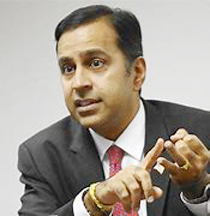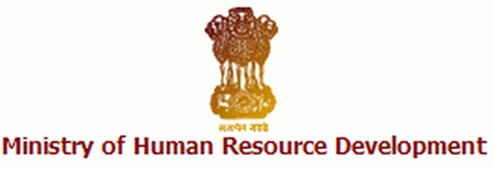
WASHINGTON, D.C. (TIP): Indian American Congressman Raja Krishnamoorthi has introduced a bill proposing to double the annual intake of highly skilled foreign workers on H-1B work visas coveted by Indian professionals.
Introduced on July 17 by the Democrat from Illinois, HR 4647, the High-Skilled Immigration Reform for Employment (HIRE) Act, also seeks to Increase funding for American STEM education.
The HIRE Act, according to a media release, would strengthen US competitiveness by helping to close the skills gap – the space between the skills required for jobs that employers need to fill, and the skills possessed by current prospective employees.
It would help to close the skills gap by providing additional funding to strengthen US elementary and secondary school science, technology, engineering, and math (STEM) education programs.
The bill also seeks to double the number of H-1B visas available annually from 65,000 to 130,000 to allow American employers, including in critical technology sectors, to draw the best talent from around the world. Currently nearly three fourths of H-1B visas go to Indian professionals.
The bill is supported by ITServe Alliance, the largest association of IT Services organizations functioning across the United States.
“Creating jobs and building the economy of the future requires us to lead the way in technology by developing our domestic workforce while drawing the best talent from around the world,” said Krishnamoorthi.
“That is why I am proud to introduce the HIRE Act to increase investments in elementary and secondary school STEM education while doubling the number of available H-1B visas from 65,000 to 130,000. By investing in our homegrown talent while attracting the best minds from around the world, we can create better paying jobs and harness the technology of tomorrow.”
“The US needs to maintain its leadership in technology and innovation,” Vinay Mahajan, ITServe Alliance President, said. “The startup Eco System needs to be supercharged. One critical component of both is highly skilled workers. The US has a large skills gap – availability of workers vs the openings for talent in IT.”
“The HIRE Act focuses on reducing this gap through high-skilled immigration and funding for growing local STEM talent. We need the brightest minds from all over world to keep our wide lead in technology and innovation.”





We could double the number of useful H-1b visas, without raising limits by allocating H1-B visa by allocating H-1b visas based upon salary. This would clear up the H-1b backlog in 2-years, and clear up the Green Card back log in 5-years. This would help OPT students get jobs. But this will never happen, because immigration law groups like the back logs. Notice the backlogs have only grown larger, despite a tech recession. This is because of the lobbying to reduce government fees, which increases applications, each one of which requires a lawyer to understand (especially when there is massive fraud). Big Tech hires those same immigration law groups to lobby for the H-1b program, hence any change made, is such that the back log only increases, never dissipates. Doubling (tripling, quadrupling) the visa count will never get rid of the backlogs, only make them worse. It will give millions of workers to Offshore Outsourcing companies based in India, so they can remove tech jobs from the United States. This will cause inflation in the U.S., as people in India use their newly acquired dollars to buy oil and commodities, from whoever can sell them. Thus increasing the costs to U.S. consumers, cooling and damaging the U.S. economy, which will have little to actually offer, thanks to massive offshoring of jobs. We don’t need more STEM workers in the U.S. DOJ vs Facebook (2020) which contains information obtained directly from Facebook’s own employers, under threat of a Federal Obstruction of Justice charge, shows that Tech companies routinely find 30+ fully qualified local STEM/IT workers for every job that is openly advertised. The local STEM/IT competition in the U.S. is so severe (before the tech recession) that tech companies must shield foreign workers from that local competition, which is against U.S. Federal anti-discrimination law (hence the lawsuit, DOJ vs Facebook 2020 at the USDOJ).